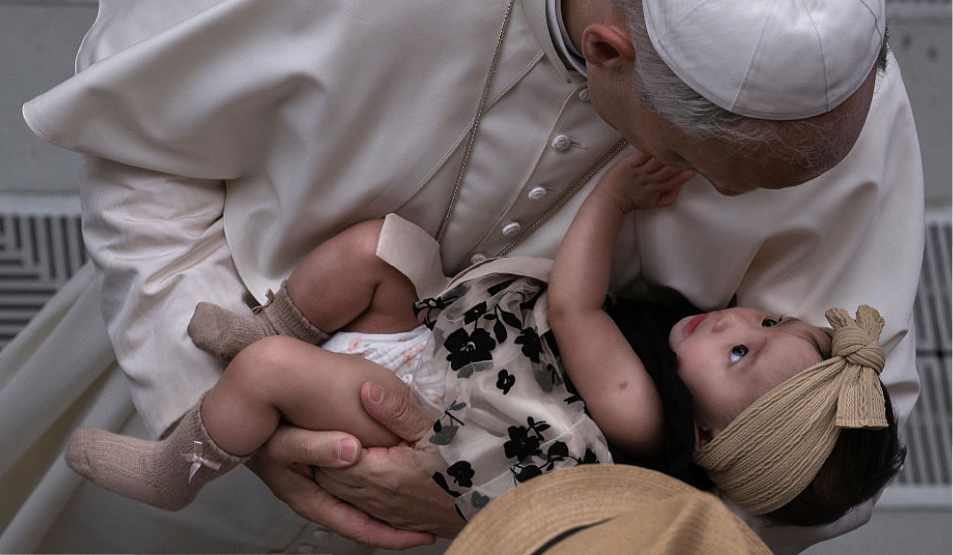Pope Leo XIV has urged the Church and wider society to confront the risks posed to young people by artificial intelligence (AI), warning that children are increasingly exposed to powerful digital systems capable of shaping their choices without their knowledge.
Addressing delegates at a Vatican conference on the dignity of children in the age of AI, he insisted that “safeguarding minors’ dignity cannot be reduced to policies” and argued that proper formation in the digital realm is becoming essential for families and educators.
The Pope’s remarks came at Clementine Hall on 13 November, where specialists in child development and emerging technologies gathered under the auspices of the Foundation for the Study and Research on Childhood and Adolescence.
In a carefully worded address, Pope Leo cautioned that current patterns of access to technology are leaving many young people exposed. He warned in particular against “premature, unlimited and unsupervised digital access”, stressing that modern systems are capable not only of collecting data but of shaping behaviour.
“Children and adolescents are particularly vulnerable to manipulation through AI algorithms that can influence their decisions and preferences,” he said, noting that such systems often work invisibly and at speed.
The Pope said it was vital for adults to understand how these mechanisms function if they are to help guide the young.
“It is essential that parents and educators be aware of these dynamics, and that tools be developed to monitor and guide young people’s interactions with technology.”
He placed strong emphasis on responsibility within the home, the school and the Church, arguing that protective legislation cannot replace human presence and example.
While recognising the value of ethical frameworks, he added, “It is indeed important to draft and enforce ethical guidelines, but that is not enough.” Instead, he called for “daily, ongoing educational efforts”, urging adults to rediscover their role as attentive guides in a rapidly changing environment.
The goal, he said, must be to ensure that artificial intelligence “serves as an ally, and not a threat, in the growth and development of children and adolescents”.
The Pope’s intervention reflects longstanding Catholic concerns about safeguarding the young in periods of cultural upheaval. Previous popes have confronted the arrival of mass broadcasting, the spread of television and later the rise of the internet, each of which prompted warnings from Church leaders about the formation of conscience and the influence of powerful media.
As with those earlier shifts, the Holy See now appears determined to frame the challenges of AI not simply as technical matters but as questions touching the nature of human dignity.
By highlighting the subtle ways digital tools can shape behaviour, Pope Leo XIV positions the current moment as one requiring vigilance, formation and renewed moral clarity.
His appeal suggests a conviction that the defence of children today requires more than regulation: it demands a culture capable of accompanying them through an increasingly complex technological world.
“Only by taking part in the discovery of such risks and the effects on their personal and social life, can minors be supported in approaching the digital world as a means of strengthening their ability to make responsible choices for themselves and for others,” Pope Leo says.\
Photo: Pope Leo XIV holding a newborn baby girl in his arms during his weekly general audience in the Paul VI hall at the Vatican (Photo by MARIA GRAZIA PICCIARELLA/Middle East Images/AFP via Getty Images)

















